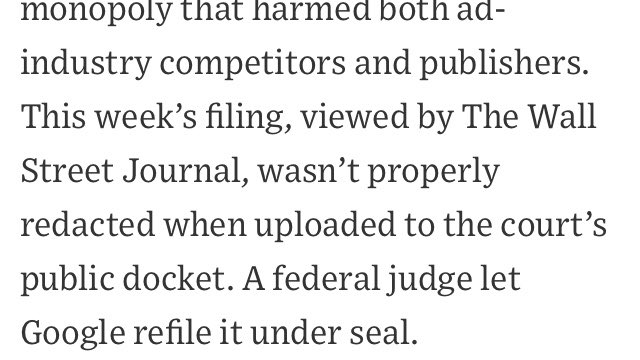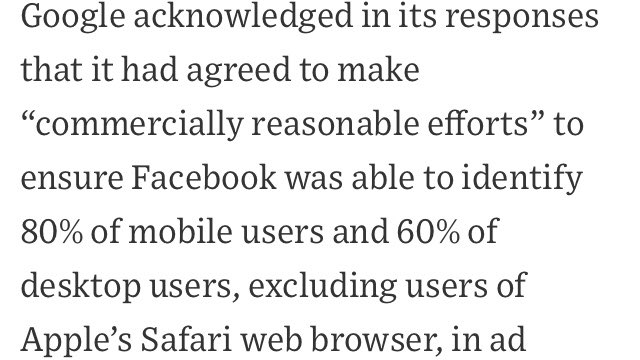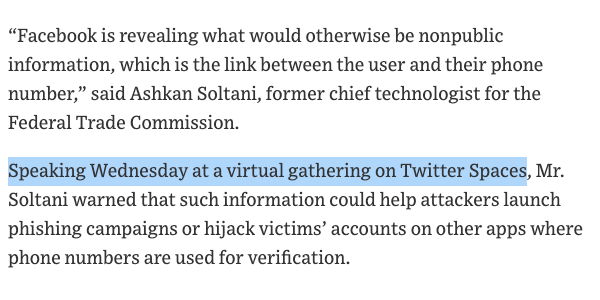
It's unequivocal Google's dominance is partially built on surveillance outside its own properties. When are we going to talk about its engineers spreading propaganda in significant forums where the web's future is shaped? This 50-70% data point is entirely created by Google. /1 

Recall it comes from Google's own study which it first released as a headline then pressed a 2 page piece of garbage then finally to a regulator but AFAIK we still don't even know the sites and it looked only at sites utilizing google's dominant adtech. /2
and it entirely ignores best study I know of using empirical ad log data from a significant number and diverse set of websites to examine how welfare will reallocate with changes to how data is shared horizontally for ad targeting (aka surveillance). /3 wsj.com/articles/behav…
Natasha @ Techcrunch also covered it fabulously well here. Again, this was from an actual independent academic and reviewed at major economics conferences. @riptari /4 techcrunch.com/2019/05/31/tar…
• • •
Missing some Tweet in this thread? You can try to
force a refresh








